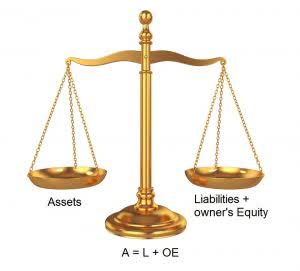Financial Accounting vs Managerial Accounting
The financial statements are typically generated quarterly and annually, although some entities also require monthly statements. Much work is involved in creating the financial statements, and any adjustments to accounts must be made before the statements can be produced. A physical count inventory must be done to adjust the inventory and cost of goods sold accounts, depreciation must be calculated and entered, all prepaid asset accounts must be reviewed for adjustments, and so forth. This audit cannot be completed until after the end of the company’s fiscal year, because the auditors need access to all of the information for the company for that year. On the other hand, financial accounting reports are tightly regulated, especially when it comes to a company’s balance sheet, income statement, and cash flow statement.
The information contained in these statements is available for public review and used by investors, which is why companies need to be very careful about how they report figures and make calculations for these. One of the biggest differences between financial and managerial accounting is their legal status. As the reports created with managerial consulting are purely for internal use, there is no specific set of accounting standards they need to adhere to. Each company is free to use its own system and rules when creating managerial reports. A financial accountant or a financial accounting team is responsible for overseeing the economic activities within an organization. Their job is essential, as companies can make budgeting and investment decisions based on the financial accountant’s statements.
What is managerial accounting?
While these categories typically include a similar set of activities, each type of finance has nuances that reflect the different regulations, considerations, and concerns of each population. Though they overlap in some areas, managerial and financial accounting differ in several aspects. You work tirelessly for two straight days compiling projections of sales and revenues to prepare the reports. This type of analysis helps management to evaluate how effective they were at carrying out the plans and meeting the goals of the corporation. You will see many examples of reports and analyses that can be used as tools to help management make decisions. Because it is manager oriented, any study of managerial accounting must be preceded by some understanding of what managers do, the information managers need, and the general business environment.
On the other hand, financial accounting must follow various accounting standards. Financial accounting is concerned with the financial results that a business has already achieved, so it has a historical orientation. Managerial accounting may address budgets and forecasts, and so can have a future orientation. However, managerial accounting also needs to incorporate historical information into analyses, typically as part of revenue and expense extrapolations.
The Differences Between Finance and Accounting
As the overall demand for the accounting industry grows, so will the need to fill the various roles available under both managerial or financial accounting. Managerial accounting reports are shared internally only and financial accounting vs managerial accounting are, therefore, not subject to such rules and regulations and are not required by laws to follow any accounting standard. The following categories also show the differences between financial and managerial accounting.
Accounting Principles Explained: How They Work, GAAP, IFRS – Investopedia
Accounting Principles Explained: How They Work, GAAP, IFRS.
Posted: Mon, 18 Dec 2023 08:00:00 GMT [source]
The main objective of managerial accounting is to produce useful information for a company’s internal decision-making. Business managers collect information that feeds into strategic planning, helps management set realistic goals, and encourages an efficient directing of company resources. In either case, developing your financial acumen is key to making better business decisions. This formula looks at what a company owns (its assets), what it owes (its liabilities), and the residual that belongs to shareholders (owner’s equity). And it must balance out—the assets on the left should equal the claims against those assets on the other side. It’s a fundamental means for determining whether a company’s financial records accurately reflect the transactions carried out over a period of time.
Nature of Reports
In accounting, a conservatism principle is often applied, which suggests that companies should record lower projected values of their assets and higher estimates of their liabilities. Under this doctrine, if you don’t know the value of something precisely, you count it as zero. Doing so helps businesses avoid overextending themselves by underestimating the value of assets and overestimating the liabilities that they owe. The field of finance can be broken down to hone in on the specific types of parties involved, including personal finance, corporate finance, and public finance.
- He would like the projections in three days’ time so that he can present the results to the board at the annual meeting.
- Because of the precision necessary to maintain financial accounts for investing and taxation purposes, this type of accounting never uses estimates.
- They both deal with processing information which is useful in decision-making; however, they have notable differences that distinguish them from each other.
- The main difference between managerial and financial accounting lies in the organization and presentation of information.
If you want to know how much that assembly machine is worth (its value) after two years in your production line, you make use of financial accounting to analyze the situation. So, both accounting branches use analytics to collect data and develop insights and strategies. In most companies, they are used simultaneously to create a more efficient, profitable business. There are also additional rules for publicly held companies that are governed by the Securities and Exchange Commission (SEC) that need to be followed as well.

